Tips on Accommodation in Portugal
When you check in at a hotel, you will see the official rates posted in the main lobby and somewhere in your room, perhaps at the bottom of the closet. These rates, dictated by the Board of Tourism, are regulated and really are a form of rental control. Includes 13% service charge and 18% value added tax (VAT).
If an infringement occurs as an overload, you may ask to receive the Official Complaints Book, in which you can write your allegations. The hotel manager is required to submit comments to the Tourism Board. Board staff examine them to see if punitive actions should be taken.
The government rates hotels in Portugal from five stars to one. The difference between a five star hotel and a four star hotel will not always be apparent to the casual visitor. Often the distinction is based on square images of bathrooms and other technical details. When you go below this level, you enter the realm of the second and third class hotel. Some can be decent and even great places to stay. The third class hotels are simple accommodations in Portugal.
Coastal hotels, especially those in the Algarve, are required to give off-season visitors (Nov-Feb) a 15% discount. To attract more off-season business, many establishments offer this discount from mid-October to March.
Prices and Ratings in This Guide - Unless otherwise noted, prices in this guide include taxes and services. Breakfast may or may not be included; the individual notes reflect the hotels various breakfast policies. All references in Portugal to "including breakfast" refer to the continental breakfast of juice, coffee or tea, croissants, butter and jam. If you stay in a hotel and order bacon and eggs or other extras, you will probably be charged for them as a la carte items. Parking fees are per day.
Guesthouses
When traveling in the countryside, plan your trips to stop at government-owned inns . The Portuguese government has established these inns in historic buildings such as convents, palaces and castles. Often they occupy beautiful physical scenarios. Usually (but not always), the inns are in regions that do not have many suitable hotels - from Sagres de Henrique the Navigator to a feudal castle in the walled city of Óbidos. The rates are not low but, for the quality and services offered, are moderate. A guest cannot stay longer than 5 days because there is usually a waiting list. Special terms are given to honeymooners.
Cottages
Far more exciting - at least for us - than the inns is the chain of restored farmhouses, cottages and stately homes that have opened for the public here. These properties are the most recommended in this guide, and offer great comfort and charm, often in a historic setting.
The best and most extensive network is in the Viana do Castelo region, where you can sometimes embark on the poor but proud Portuguese aristocracy. Many of these mansions and farms are called farms. The Housing Tourism association , which operates mainly in the north, was formed to publicize and link these unique accommodations. In recent years, areas such as Beiras and Alentejo have been included. Local tourist offices provide directories that include color photographs and maps with directions. All of these properties are privately run and breakfast is always included. Republic Square, 4990 Ponte de Lima (tel. 25 / 874-28-27; www.solaresdeportugal.pt).
Other Special Accommodations
Non-government run tourist lodges are known as inns. Often these offer some of the best accommodation in Portugal; many are decorated in traditional Portuguese or typical style and represent top-notch bargains.
The residence is a form of pension, no pension. These establishments offer only one room and breakfast. The pension is a pension that charges the lowest rates in the country. The "luxury" pension is a misconception; The term simply means that the pension enjoys the highest rating in its category. The accommodations are decidedly not luxurious. A "luxury pension" is usually the equivalent of a second class hotel. Pensions are found for the budget hunter. Many prepare generous portions of good local cuisine. There are two first and second class pensions.
Another addition to the accommodation scene is the solare. Most are spacious country houses, formerly owned by the Portuguese aristocracy, which are now being restored and opened as inns. Many date back to the Age of Exploration, when sailors brought wealth back from around the world and established luxurious homes that were passed on to their heirs. The inns are all over the country, but most are along the Costa Verde, between Ponte de Lima and Viana do Castelo.
Reservations
Reservations are essential for high season summer travel in Portugal when many hotels are filled with Europeans on holiday. Unless it is incurably spontaneous, you will probably get better with some idea of where you will spend every night, even in the low season.
Most hotels require a deposit of at least one day before booking a room. You can usually cancel a room reservation 1 week in advance and get a full refund, but check the hotel policy when booking. It is important that you include a prepaid international reply coupon with your payment, especially if you are writing for a budget hotel. Better yet, call and speak with a staff member or fax.
If an infringement occurs as an overload, you may ask to receive the Official Complaints Book, in which you can write your allegations. The hotel manager is required to submit comments to the Tourism Board. Board staff examine them to see if punitive actions should be taken.
Coastal hotels, especially those in the Algarve, are required to give off-season visitors (Nov-Feb) a 15% discount. To attract more off-season business, many establishments offer this discount from mid-October to March.
Prices and Ratings in This Guide - Unless otherwise noted, prices in this guide include taxes and services. Breakfast may or may not be included; the individual notes reflect the hotels various breakfast policies. All references in Portugal to "including breakfast" refer to the continental breakfast of juice, coffee or tea, croissants, butter and jam. If you stay in a hotel and order bacon and eggs or other extras, you will probably be charged for them as a la carte items. Parking fees are per day.
Guesthouses
Cottages
Far more exciting - at least for us - than the inns is the chain of restored farmhouses, cottages and stately homes that have opened for the public here. These properties are the most recommended in this guide, and offer great comfort and charm, often in a historic setting.
The best and most extensive network is in the Viana do Castelo region, where you can sometimes embark on the poor but proud Portuguese aristocracy. Many of these mansions and farms are called farms. The Housing Tourism association , which operates mainly in the north, was formed to publicize and link these unique accommodations. In recent years, areas such as Beiras and Alentejo have been included. Local tourist offices provide directories that include color photographs and maps with directions. All of these properties are privately run and breakfast is always included. Republic Square, 4990 Ponte de Lima (tel. 25 / 874-28-27; www.solaresdeportugal.pt).
Non-government run tourist lodges are known as inns. Often these offer some of the best accommodation in Portugal; many are decorated in traditional Portuguese or typical style and represent top-notch bargains.
The residence is a form of pension, no pension. These establishments offer only one room and breakfast. The pension is a pension that charges the lowest rates in the country. The "luxury" pension is a misconception; The term simply means that the pension enjoys the highest rating in its category. The accommodations are decidedly not luxurious. A "luxury pension" is usually the equivalent of a second class hotel. Pensions are found for the budget hunter. Many prepare generous portions of good local cuisine. There are two first and second class pensions.
Another addition to the accommodation scene is the solare. Most are spacious country houses, formerly owned by the Portuguese aristocracy, which are now being restored and opened as inns. Many date back to the Age of Exploration, when sailors brought wealth back from around the world and established luxurious homes that were passed on to their heirs. The inns are all over the country, but most are along the Costa Verde, between Ponte de Lima and Viana do Castelo.
Reservations
Reservations are essential for high season summer travel in Portugal when many hotels are filled with Europeans on holiday. Unless it is incurably spontaneous, you will probably get better with some idea of where you will spend every night, even in the low season.
Most hotels require a deposit of at least one day before booking a room. You can usually cancel a room reservation 1 week in advance and get a full refund, but check the hotel policy when booking. It is important that you include a prepaid international reply coupon with your payment, especially if you are writing for a budget hotel. Better yet, call and speak with a staff member or fax.
Outros Artigos Populares no Blogue
-
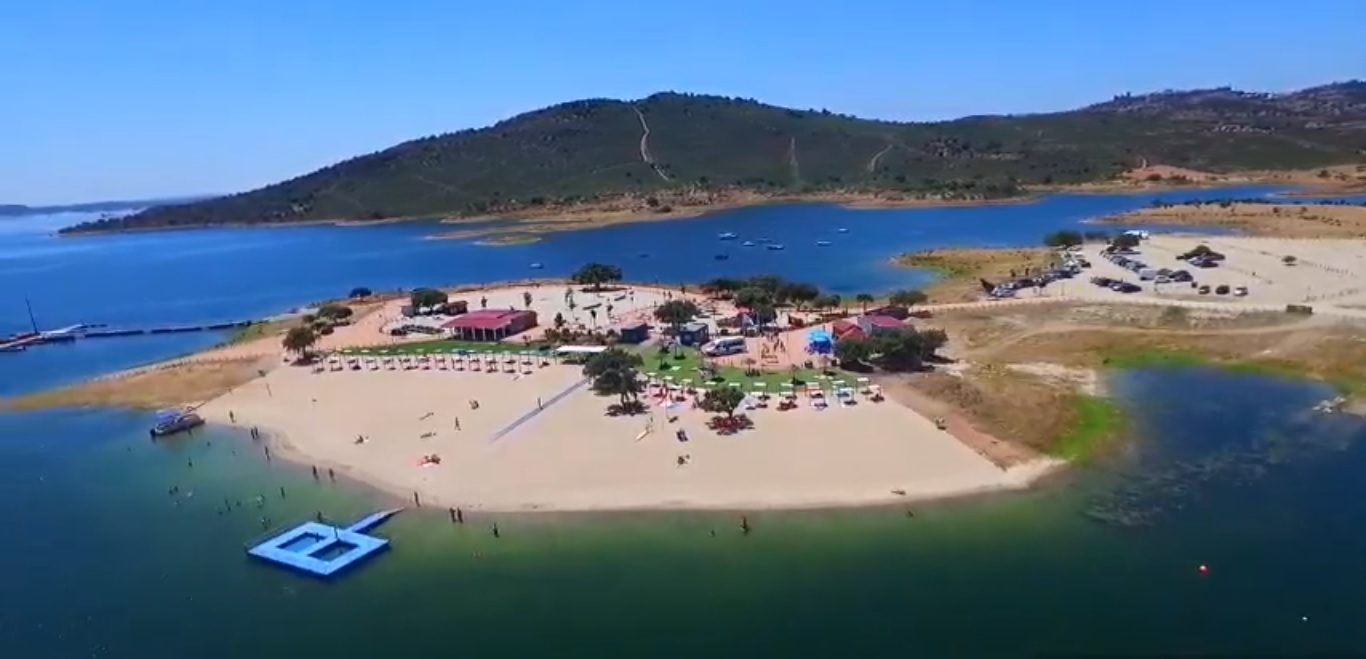

Monsaraz Alqueva beach paradise in the Alentejo Portugal
It features a floating pool for children and adults, a poolside bar and restaurant. It also has a shady grassy area for warmer days and parking. ... -
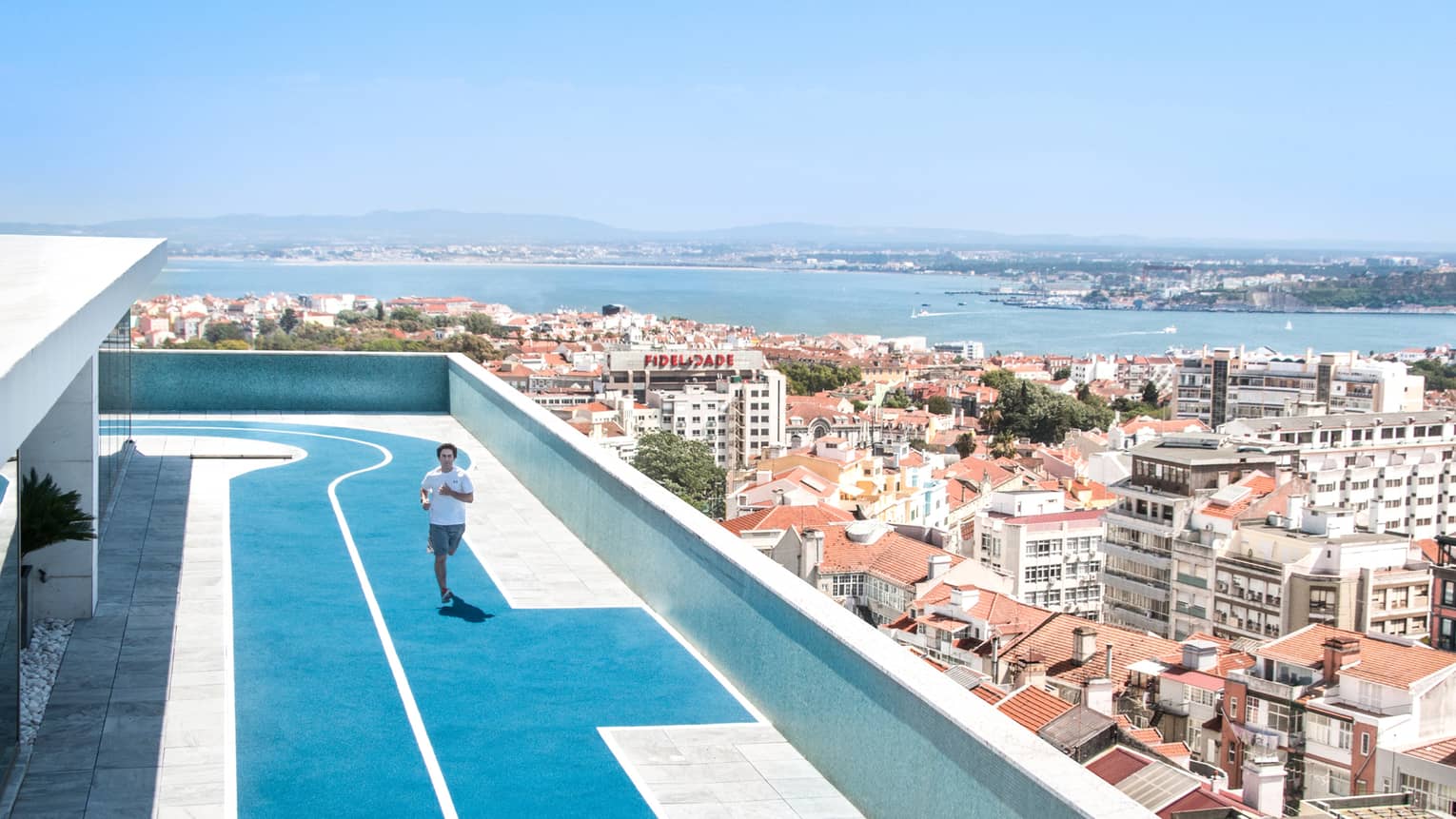

There is a 400 meter running track at the top of the hotel Ritz Lisbon
It is the most exclusive place to race in Lisbon. On the terrace of this five-star Ritz hotel is a 400-meter runway with breathtaking city views ... -
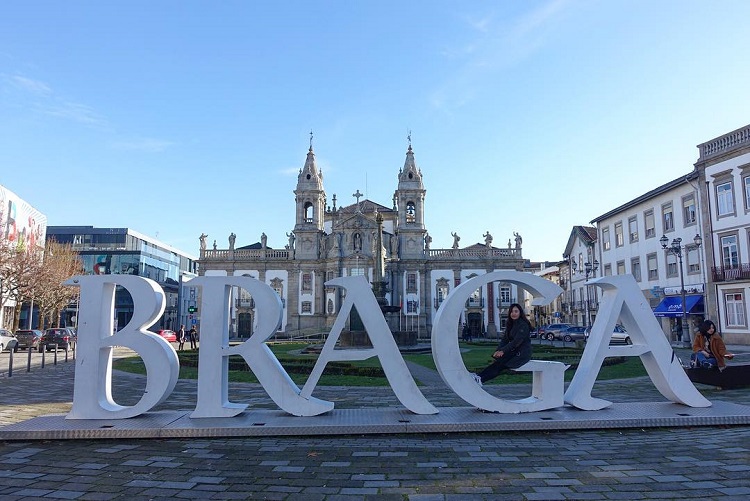

This is the best city to live in Portugal 2020
The ranking of the best city to live in Portugal the successes, Braga among the cities with the best quality of life in Europe, the norther... -
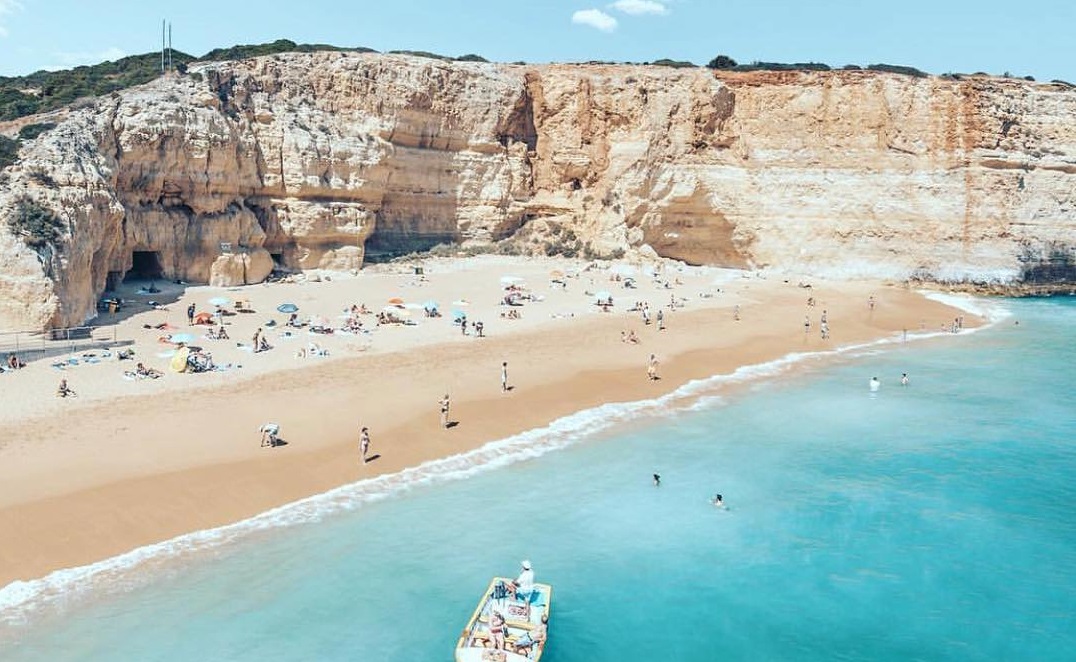

Portugal has 44 beaches with completely clean water Zero pollution See List
According to ZERO, no contamination has been detected in the water analyzes of these beaches over the last three bathing seasons and the number of zer... -
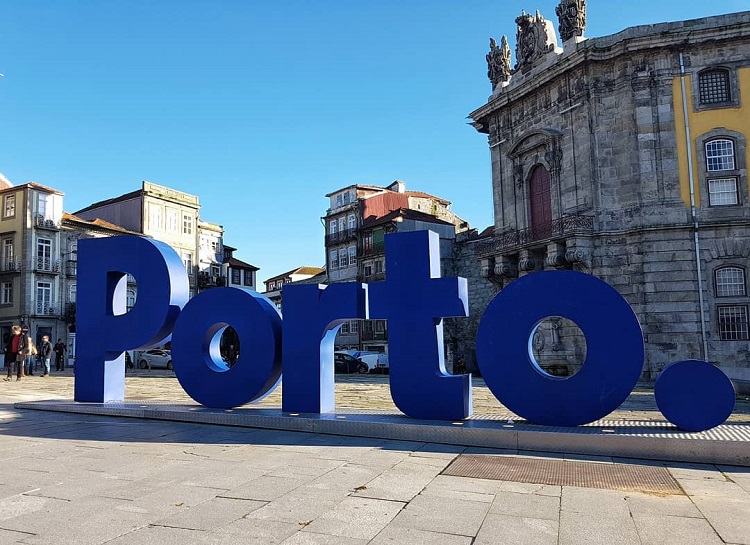

The 10 Best Destinations for Family Holidays in Portugal
Bragança Capital of the Trás os Montes region, although little explored by tourism, it is always a pleasant destination for tho... -
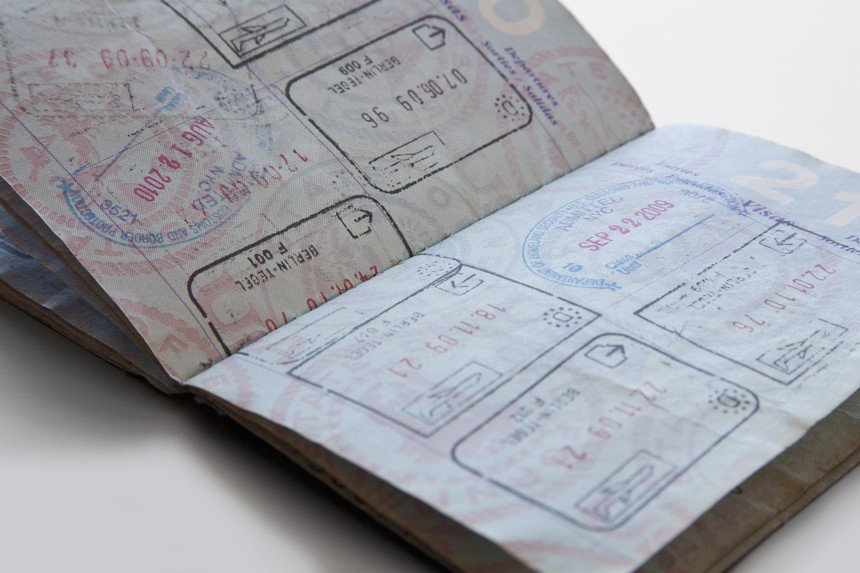

Portuguese passport is 5th best in the world
Japan and Singapore have the best passport in the world. The Portuguese passport was in fifth Portugal was in fifth, along with Austria, the Neth... -


Paiva walkways in Portugal considered the best tourism project in Europe
Paivas walkways in Arouca won the awards for best tourism project in Europe and best adventure experience for the third consecutive year at the World ... -
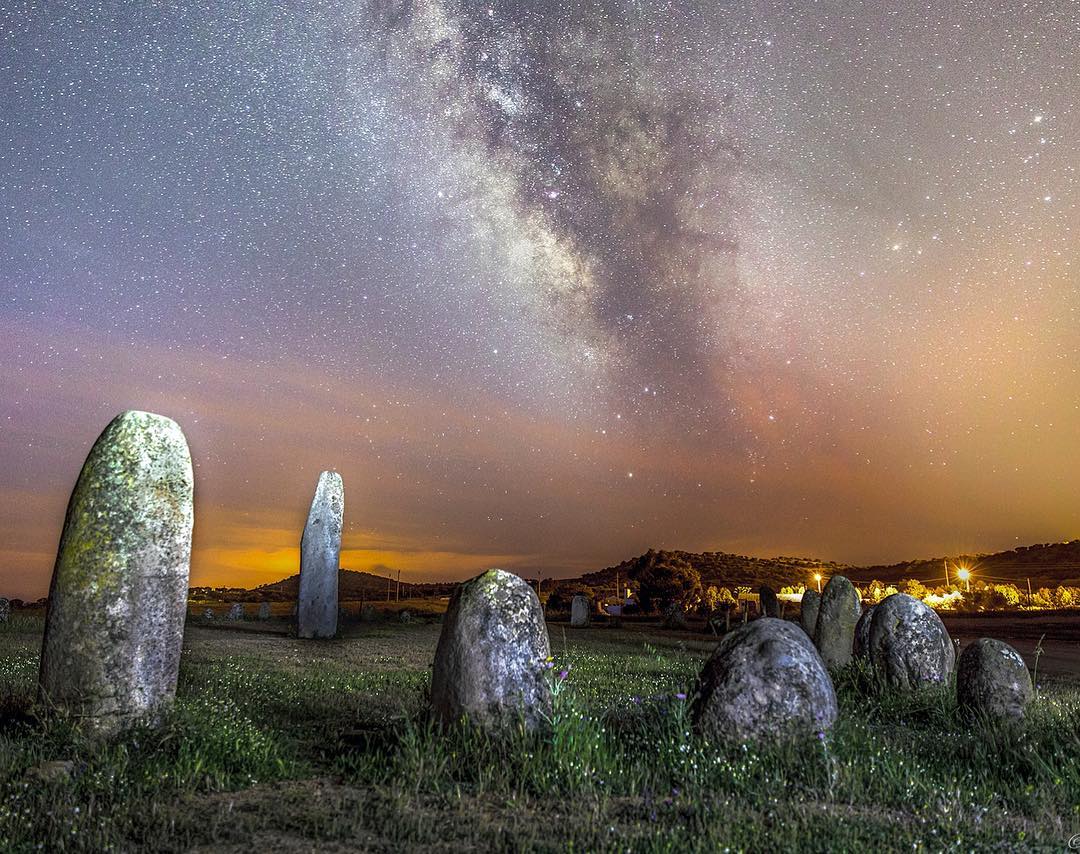

Alentejo in Portugal considered the best place in the world to see stars
In Alentejo, Alquevas sky is an internationally protected and certified area, registered as a Dark Sky reserve, or Starlight Tourism Destination, whic...
